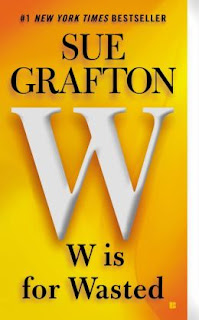Like this one, for example!
These are all books I need to return to the library today, so this is my last chance to type something quickly about them while they're still in front of me.
We Are Pirates by Daniel Handler
by Daniel Handler
Daniel Handler is almost two writers -- his work as Lemony Snicket for younger readers relates to his books under his own name, but there are differences. Snicket and Handler are both sly writers, in love with language, but Snicket is more honest and straightforward; Handler delights in tricks and stratagems and complications in his structures.
This is a Handler novel, for adults, more or less his fifth. (That depends on how you count Why We Broke Up, a Handler book for teens, and Adverbs, a collection of loosely linked stories.) It's also an interesting bookend to his first book, The Basic Eight, which also sees a teenage girl spit on her hands, hoist the black flag, and start slitting throats. (And not entirely in metaphor, in both cases.) Since it's a Handler book rather than a Snicket, it's more opaque and writerly -- it starts in the middle and its two-tracked plots are only loosely connected and not driven by incident so much as character.
Phil Needle is a minor producer of non-fiction radio programs (and more commercial stuff to pay the bills, but it's the former he cares about) on the verge of a big deal, for which he flies down to LA from his native San Francisco, with his new young female assistant, to meet with his larger-than-life agent. At the same time, his daughter Gwen is unhappy with her teenage life and looking for a big break.
We Are Pirates is tricksy and slippery, sliding back and from from Phil to Gwen with verve and confidence, telling their stories with deep understanding but not pausing to catch the reader up with every hop. In other words, a Daniel Handler novel. I found it very slightly disappointing -- it has a deflating ending rather than a bang -- but it is bright and crisp and dangerous, like a day sailing in pirate-infested waters.
Texts from Jane Eyre by Mallory Ortberg
by Mallory Ortberg
Ortberg is the main force behind the website The Toast, which is feminist in a default way -- focused on women and their thoughts like most of the rest of the media is aimed the other way -- and smart in at least a dozen ways. She's an interesting writer who has read and thought about a lot of wildly disparate things, which makes for quirky, fizzy pieces.
And this is her first book: a collection of the text messages that a variety of people -- mostly fictional, and mostly from famous novels -- might have sent each other, if they were as smart and well-read and feminist as Ortberg herself. There's a lot of buried literary criticism here, but it's also incredibly funny on a surface level. And Ortberg isn't all high-culture, not by a long shot: the book is arranged roughly chronologically, and the "modern" last section leads off with Sweet Valley High before wandering through Harry Potter and William Carlos Williams and Nancy Drew indiscriminately.
I might be making this sound heavy going, but it's not: it's quick and easy and funny on every page. But it's also informed by a deeper, more critical eye -- Ortberg is not going to let all of those tormented Byronic heroes get away with their angst and casually women-destroying ways. And that's all good, top to bottom.
Between You & Me by Mary Norris
by Mary Norris
Norris is a copy editor for The New Yorker, where she's worked since 1977. This is not yet another memoir of that odd workplace, though: it's something like Eats, Shoots, and Leaves for punctuation.
There have been many books on good writing and clean style and proper punctuation over the years -- I've read more of them than most people -- and Norris has an extensive bibliography in the back to show that she's quite aware of all of that. She's mildly descriptive, which is only slightly ironic given how heavily prescriptive the New Yorker is.
If you care about commas and apostrophes and clean, understandable writing, this is a good book. Norris does this kind of thing for a living, and she writes about it here clearly in a no-nonsense style and with good instincts: always follow sense and clarity rather than rules. Writers could do a lot worse than to follow her guidance.
W is for Wasted by Sue Grafton
by Sue Grafton
The Alphabet mysteries have been declining and fading into the West for some time now -- at least the last three books (Vengeance, Undertow, and Trespass) have aspired to the quality of Serious Novel at the expense of telling a good mystery story and making their main character interesting and useful. And this one continues the streak: as is now usual, Grafton carefully drains her mysteries of all tension in occasional third-person chapters about a more colorful character, while series heroine Kinsey Milhone wanders about detecting and ruminating on things in a way presumably meant to be entertaining.
I don't feel like picking apart the ways this book is disappointing, particularly since it's disappointing in the same ways the last few books have been, and I wrote extensively about them. Wasted is readable in that I've-been-a-bestseller-for-thirty-years way, and it's nice to check back in on Kinsey's life, in her rapidly receding 1988.
I think I'm just reading these out of inertia, and possibly out of hope that Grafton will pull something big out of her hat for Z. And it does seem a shame to give up on a series when it's so close to the end -- I know exactly how those people hate-reading Spider-Man for most of the past decade must feel.




No comments:
Post a Comment